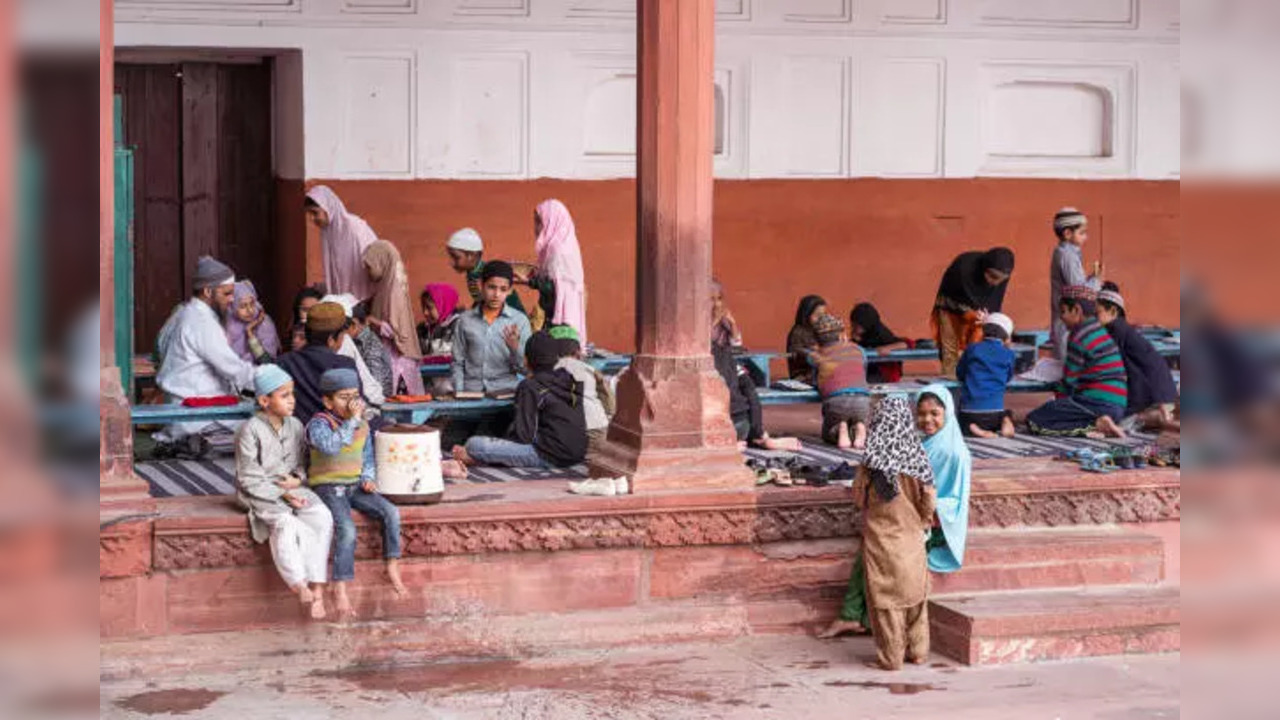Madrasas are not suitable for children to receive proper education: NCPCR tells SC
Photo: iStock
The National Commission for the Protection of Children’s Rights (NCPCR) has informed the Supreme Court that madrasas are considered “inadequate” to provide children with a “proper education”. They argue that the education offered there is “not comprehensive” and does not comply with the provisions of the Law on the right to education.
The NCPCR further stated before the court that children who are not enrolled in the formal school system are denied their fundamental right to primary education, including benefits such as mid-day meals and uniforms.
According to the PTI report, the NCPCR said that the fact that madrasas simply teach from a few NCERT books in the curriculum is a “mere window dressing” in the name of imparting education and does not ensure that children receive formal and quality education.
“A madrasa is not only an unsuitable or unfit place to receive ‘proper’ education, but also deprives one of the rights provided under Sections 19, 21, 22, 23, 24, 25 and 29 of the RTE Act,” he said.
“Furthermore, madrasas not only offer an unsatisfactory and inadequate model for education but also have an arbitrary mode of functioning which is totally devoid of a standardised curriculum and functioning,” the NCPCR said in its written submissions filed before the apex court.
The child rights body said that due to the absence of provisions in the RTE Act, 2009, madrasas are also deprived of the right under Section 21 of the 2009 Act.
“A madrasa is functioning in an arbitrary manner and is in general violation of the constitutional mandate, the RTE Act and the Juvenile Justice Act, 2015. It cannot be overlooked that a child receiving education in such an institution will lack the basic knowledge of the curriculum offered in a school.
“A school is defined under Section 2(n) of the RTE Act, 2009, to mean any recognised school imparting primary education. A madrasa, which falls outside this definition, has no right to compel children or their families to undergo madrasa education,” the NCPCR said.
According to the National Commission for Protection of Child Rights (NCPCR), many madrasas do not provide a complete educational environment for students. This includes a lack of social events and extracurricular activities essential for experiential learning.
In a relief to around 17 lakh madrasa students, the Supreme Court on April 5 stayed an Allahabad High Court order. The order had declared the Uttar Pradesh Madrasa Board Education Act, 2004 unconstitutional and contrary to the principle of secularism.
Observing that the issues raised in the petitions warrant further reflection, a three-judge bench headed by Chief Justice DY Chandrachud had issued notices to the Centre, the Uttar Pradesh government and others on the petitions challenging the top court order.
The Supreme Court stated that the high court had “prima facie” misinterpreted the provisions of the Act, which does not include provisions for religious instruction. On March 22, the apex court declared the Uttar Pradesh Madarsa Education Board Act, 2004, to be unconstitutional and violative of secular principles. It directed the state government to integrate the students into the formal education system.
The top court had declared the law ultra vires in a writ petition filed by advocate Anshuman Singh Rathore.
He had said the state “has no power to create a board of religious education or to establish a school education board only for a particular religion and the philosophy associated with it.”
“We hold that the Madarsa Act, 2004 violates the principle of secularism, which is part of the basic structure of the Constitution,” the apex court said.
The petitioner challenged the constitutionality of the UP Madrasa Board and raised concerns over the fact that madrasas are run by the Minority Welfare Department instead of the Education Department.
(Reported by PTI)
Disclaimer:
The information contained in this post is for general information purposes only. We make no representations or warranties of any kind, express or implied, about the completeness, accuracy, reliability, suitability or availability with respect to the website or the information, products, services, or related graphics contained on the post for any purpose.
We respect the intellectual property rights of content creators. If you are the owner of any material featured on our website and have concerns about its use, please contact us. We are committed to addressing any copyright issues promptly and will remove any material within 2 days of receiving a request from the rightful owner.

